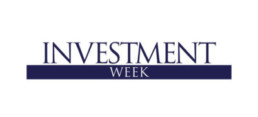The World In A Week - Return of the Mac-ron?
Written by Millan Chauhan.
Last night saw the conclusion of the French Presidential election, with Emmanuel Macron delivering a convincing victory over his far-right challenger Marine Le Pen. Macron has become the first French leader to win a second term in 20 years, taking 58.5% of the vote. Macron stated, “our country is beset by doubts and divisions”, which is well supported by the highest abstention rate in 50 years @28% and the immediate rise of the far-right nationalist party. Macron faces several tests going forward, including reconciling the indifference of opinion in France and trying to work towards a ceasefire between Russia and Ukraine.
Elsewhere, we are in the middle of US earnings season where companies report on their results from Q1 of 2022. With US inflation currently at 8.5% and supply chains remaining tight, we will begin to see the impact of rising prices and slowing consumer demand on bottom-line financial results and forecasts. One stock that was a direct beneficiary of the global pandemic was Netflix, as the world was forced to stay indoors. Netflix grew its subscriber base by 18.2m in 2021 and is the world’s leading entertainment service with approximately 222 million paid memberships. However, slowing growth, price rises, and fierce competition from rivals such as Disney+ and Amazon Prime Video saw the share price of Netflix fall 35% cent on Wednesday, erasing all its gains during the pandemic. Netflix reported they had lost 200,000 subscribers in the first quarter of 2022 with the market becoming more saturated, particularly in the US and Canada. Netflix is set to clamp down on the ability to share passwords which was a component of the slowing demand for its service.
The S&P 500 returned -1.2% last week in GBP terms, a week that also featured the largest one-day loss since March on Friday as investors anticipated the raising of interest rates by central banks. The Federal Reserve’s Chair, Jay Powell, stated that the Fed could raise rates more aggressively and begin raising rates in increments of 0.50% compared to its previous stance of increasing by 0.25%.
Any opinions stated are honestly held but are not guaranteed and should not be relied upon.
The information contained in this document is not to be regarded as an offer to buy or sell, or the solicitation of any offer to buy or sell, any investments or products.
The content of this document is for information only. It is advisable that you discuss your personal financial circumstances with a financial adviser before undertaking any investments.
All the data contained in the communication is believed to be reliable but may be inaccurate or incomplete. Unless otherwise specified all information is produced as of 25th April 2022.
© 2022 YOU Asset Management. All rights reserved.
The World In A Week - Tournez à droite?
Written by Shane Balkham.
The Federal Open Market Committee (FOMC) will meet at the beginning of May, and we are already seeing the rhetoric in order to manage market expectations. From the minutes and forecasts from the March meeting, we know that there is the prospect of six further rate rises this year.
Setting the scene for these rate hikes, we had a speech from James Bullard, President of the St. Louis branch of the Federal Reserve, and most importantly a voting member of the FOMC. On the back of March’s inflation reading in the US of 8.5%, he is calling for an increase in the speed of executing the hikes and is likely to vote for a larger hike than the previous 0.25% move. It is expected that several members will call for a rise of 50-75bps next month. For Bullard, there is a critical importance of the Fed maintaining its creditability in combating inflation, as monetary policy decisions walk a difficult and fine line in taming inflation without causing a recession.
The Bank of England also faces the same navigation problem, as inflation in the UK rose to 7% for March adding pressure for interest rates to rise. In the minutes from March’s Monetary Policy Committee meeting, the Bank of England expects inflation to peak at around 8% in Q2, recognising the large shock to the economy from the war on Ukraine. The Bank of England also meets at the beginning of May, and we might have a fourth consecutive meeting where interest rates are hiked.
Before the central banks have their next meetings, we have France deciding on their next President. On Sunday, French voters will choose between the incumbent President Emmanuel Macron, or the far-right rival of Marine Le Pen. It is expected to be an extremely tight election race, with both contenders looking to secure the voters from the ten eliminated candidates from the first round. Will Le Pen’s manifesto of protectionism and localism see France turning to the right?
Any opinions stated are honestly held but are not guaranteed and should not be relied upon.
The information contained in this document is not to be regarded as an offer to buy or sell, or the solicitation of any offer to buy or sell, any investments or products.
The content of this document is for information only. It is advisable that you discuss your personal financial circumstances with a financial adviser before undertaking any investments.
All the data contained in the communication is believed to be reliable but may be inaccurate or incomplete. Unless otherwise specified all information is produced as of 19th April 2022.
© 2022 YOU Asset Management. All rights reserved.
The World In A Week - Confusion & uncertainty
Written by Richard Warne.
Equity and bond markets were generally in negative territory last week, with most bond indices declining around -1.0% and the global equity market, MSCI All Country World Index retracted -0.7% in Sterling terms. The shining light for the week was the performance of UK equities with the FTSE All Share Index +1.5%, a positive for us with an overweight to the UK equity market. The return of the UK market is indicative of the variation we have seen this year between value and growth, with the UK market being “old economy”, a beneficiary of the shift in expectations of rising rates and inflation, with its high exposure to mining, energy, and financials.
The shift in market sentiment emphasised the old economy and new economy deviation. While the UK market enjoyed a positive week, the Nasdaq 100 in the US, which has a significant allocation to technology, declined -2.8% in Sterling terms. The first quarter earnings season will soon be upon us, which may provide a guide to where markets are going. It will be important in helping to answer the question everyone wants to know – “are the global economy and markets strong enough to endure a monetary tightening cycle”?
The environment continues to remain confusing. Many of the macro-overhangs continue to weigh on markets, while the war in Ukraine sadly drags on with little visibility of a resolution. China is balancing how it contains recent COVID-19 outbreaks without damaging an already sluggish economy, while in the US the Fed is signalling an accelerated timeline for quantitative easing. In France, the resurgence of the far right could signal further political uncertainty in Europe. All good reasons why, as investors, it is important to stick to your investment journey and not be swayed by the uncertainty.
Any opinions stated are honestly held but are not guaranteed and should not be relied upon.
The information contained in this document is not to be regarded as an offer to buy or sell, or the solicitation of any offer to buy or sell, any investments or products.
The content of this document is for information only. It is advisable that you discuss your personal financial circumstances with a financial adviser before undertaking any investments.
All the data contained in the communication is believed to be reliable but may be inaccurate or incomplete. Unless otherwise specified all information is produced as of 11th April 2022.
© 2022 YOU Asset Management. All rights reserved.
The World In A Week - Weeks Where Decades Happen
Written by Cormac Nevin.
Last Friday marked the end of an extraordinary first quarter, which likely left most policymakers feeling like April fools. Policies centred around everything, ranging from dependence on Russian hydrocarbons to past assertions of the transitory nature of inflation, and began to unwind before our eyes. Vladimir Lenin famously said, “There are decades where nothing happens; and there are weeks where decades happen”, and this quote certainly applies to the first quarter of 2022.
Markets rallied last week as risk appetite appeared to return. The MSCI All Country World Index returned +1.2% in GBP terms. Overall, the first quarter was negative for both Equity and Fixed Income returns with the confluence of the economic impact from the war in Europe, causing higher interest rates as central banks battle stubborn inflation and further COVID restrictions in China causing a broad-based sell off. The MSCI All Country World Index of global equities was down -2.1% for the quarter, however outcomes ranged from -7.3% for Continental European Equities to +0.8% for UK Equities, while the S&P 500 in the US was down -1.4% despite heavy tech selling at the beginning of the quarter.
It was one of the worst quarters on record for Fixed Income, as the Bloomberg Global Aggregate GBP Hedged was down -5.2% in the face of rising interest rates, while Investment Grade Credit was down -7.1%. Similar to the equity markets, there was a wide dispersion of outcomes below the surface. Chinese Government debt was up +0.3% for the quarter while Short Dated Inflation Linked Bonds were down only -0.3%. Periods like this illustrate once again the necessity for diligent and diversified positioning to achieve the best outcomes for clients.
Any opinions stated are honestly held but are not guaranteed and should not be relied upon.
The information contained in this document is not to be regarded as an offer to buy or sell, or the solicitation of any offer to buy or sell, any investments or products.
The content of this document is for information only. It is advisable that you discuss your personal financial circumstances with a financial adviser before undertaking any investments.
All the data contained in the communication is believed to be reliable but may be inaccurate or incomplete. Unless otherwise specified all information is produced as of 4th April 2022.
© 2022 YOU Asset Management. All rights reserved.
YOU's Derrick Dunne: 'We have a lot of the jigsaw pieces'
Lauren Mason talks to Derrick Dunne about the firm’s rebrand from Beaufort Investment, the headwinds facing ESG investors beyond greenwashing and what the next long-term focus will be.
The World In A Week - Sunak’s Spring Statement
Written by Millan Chauhan.
Last week saw the UK’s Chancellor of the Exchequer, Rishi Sunak, unveil his spring statement update that, in an attempt to support individuals with the rising costs of living, saw a marginal cut in fuel duty and a rise in the minimum threshold of National insurance. On Wednesday last week, UK inflation hit a 30-year high, reaching 6.2% in the 12 months to February. Inflation was at 5.5% in the 12 months to January, but the Russia-Ukraine conflict saw energy prices move even higher due to supply constraints, which has only added to the spiralling increase in living costs. Inflation increased by 0.8% in the month of February, with transport costs being the major contributor. Transport costs have seen an increase of 11.5% in the 12 months to February, the biggest increase of all categories measured by the Office for National Statistics.
Breaking down inflation further, energy prices were a top contributor with the inflation rate of electricity at 19.2% and gas at 28.3% for the year in the 12 months to February. The average household energy bill in February 2022 reached £1,971, compared to the previous year of £1,138, a staggering 73% increase.
Raising interest rates is one of the key monetary policy methods of tackling inflation, with the intention of reducing consumption and promoting savings. Global Central Banks have started increasing rates, with the Federal Reserve raising rates by 0.25% for the first time in 3 years. The Federal Reserve Chair Jerome Powell announced that rate hikes of greater than 0.25% may occur if necessary. The Federal Reserve expect to raise rates at each of their remaining six meetings this year. The pace at which the Federal Reserve acts to raise rates is going to be crucial as they intend to combat inflation fears without crippling the global economy. The current environment remains challenging as central banks are having to control inflation without causing a recession.
Any opinions stated are honestly held but are not guaranteed and should not be relied upon.
The information contained in this document is not to be regarded as an offer to buy or sell, or the solicitation of any offer to buy or sell, any investments or products.
The content of this document is for information only. It is advisable that you discuss your personal financial circumstances with a financial adviser before undertaking any investments.
All the data contained in the communication is believed to be reliable but may be inaccurate or incomplete. Unless otherwise specified all information is produced as of 28th March 2022.
© 2022 YOU Asset Management. All rights reserved.
CPI inflation rises to 30-year high of 6.2%
CPI inflation recorded an annual rise of 6.2% in February 2022 – the highest since March 1992’s growth of 7.1%.
The World In A Week - Drawing the path for interest rates
Written by Shane Balkham.
Markets remain focused on the war in Ukraine and, although there were tentative signs of progress and positivity over the peace talks in Turkey, the fighting continues unabated. The Ukrainian Government has refused Russia’s demands that the port of Mariupol be surrendered. Development in talks is welcome, however it seems impossible that Europe can return to how things stood before the invasion. Sanctions against Russia will linger and spending on energy security and defence will likely take on greater importance and significance for many countries.
Before Russia had invaded Ukraine and inflicted a terrible toll on human life, the markets were fully focused on the rotation to an interest rising environment and how quickly rates would be hiked in order to combat the rising levels of inflation. Last week, we had the committee meetings from the central banks of the US and UK to give guidance on how they will enact interest rate policy.
The Federal Reserve raised interest rates by 0.25% and gave a generally buoyant outlook, citing the strong employment numbers in the US. This was arguably expected, and the key element was always going to be the forward guidance for the path of rate rises in 2022. The projections from the Fed showed that six additional rate hikes are now priced in for the remainder of the year, putting year end interest rates at 1.75%.
The Bank of England also raised rates by 0.25%, making it three consecutive meetings of rising interest rates by a quarter percent. However, the accompanying rhetoric was more subdued than its US counterpart, noting the risks to the growth stemming from the war in Ukraine.
The war has undoubtedly made the decision making of the central banks more difficult. The effect on the supply of food and energy has increased the pressures on inflation, where prices have already been rising sharply. This could dent consumer confidence and the policymakers will not want to compound the problem by raising rates too quickly, a sentiment that was echoed in the Bank of England’s minutes.
The backdrop continues to be challenging and uncertain and will be for some time. The markets will remain focused on the central banks, even beyond the hopeful cessation of the conflict. Having appropriately diversified investments during times of stress continues to be a successful strategy.
Any opinions stated are honestly held but are not guaranteed and should not be relied upon.
The information contained in this document is not to be regarded as an offer to buy or sell, or the solicitation of any offer to buy or sell, any investments or products.
The content of this document is for information only. It is advisable that you discuss your personal financial circumstances with a financial adviser before undertaking any investments.
All the data contained in the communication is believed to be reliable but may be inaccurate or incomplete. Unless otherwise specified all information is produced as of 21st March 2022.
© 2022 YOU Asset Management. All rights reserved.






The World In A Week - April is the Cruellest Month
Written by Cormac Nevin.
April proved to be another challenging month for investors as the MSCI All Country World Index retreated -3.5% in GBP terms, which admittedly was better than the -6.5% return in local currency terms thanks to the weakening in Sterling. There was a wide spread of outcomes for global investors across different markets. Much of the pain was concentrated in the tech-focused NASDAQ Index of US Equities which lost -13.3% in local currency terms over the month. The UK Equity market, measured by the FTSE All Share Index, was something of a safe haven in this environment, returning +0.3% for the month. Alongside falls in the equity markets, traditional Fixed Income markets offered little by way of protection as the Bloomberg Global Aggregate Index of investment grade bonds fell -2.8% in GBP Hedged terms, while the High Yield Corporate Index was down -3.3%.
These market ructions are likely symptomatic of the ongoing transition we have witnessed this year from the market exuberance and easy financial conditions which characterised the post-pandemic environment, to an environment with higher interest rates, higher inflation rates and more realistic equity valuations. One of the most notable developments this year has been the continued deflation of speculative equity valuations which reached levels reminiscent of the dot.com boom of the early 2000’s, while the bust has been eerily similar too. Cathie Wood’s much hyped Ark Innovation ETF is now in a -70% drawdown from its pandemic peak. Names that might be more familiar to UK investors, such as the Baillie Gifford suite of products, have experienced similar outcomes.
However, much like in the opening lines of T.S Eliot’s poem from which our title is sourced (ironically written at the twilight of the last great pandemic of 1918), April is also the month in which hope springs eternal. Value equity performance has been robust in recent months, active Fixed Income management has been hugely important and high-tech growth equities are now priced at more reasonable levels. Diligent and open-minded research will likely assist long-term investors to plant the seeds for future returns.
Any opinions stated are honestly held but are not guaranteed and should not be relied upon.
The information contained in this document is not to be regarded as an offer to buy or sell, or the solicitation of any offer to buy or sell, any investments or products.
The content of this document is for information only. It is advisable that you discuss your personal financial circumstances with a financial adviser before undertaking any investments.
All the data contained in the communication is believed to be reliable but may be inaccurate or incomplete. Unless otherwise specified all information is produced as of 3rd May 2022.
© 2022 YOU Asset Management. All rights reserved.